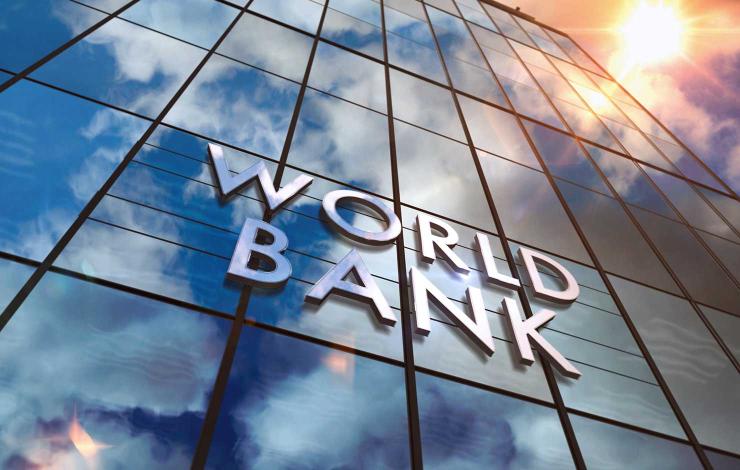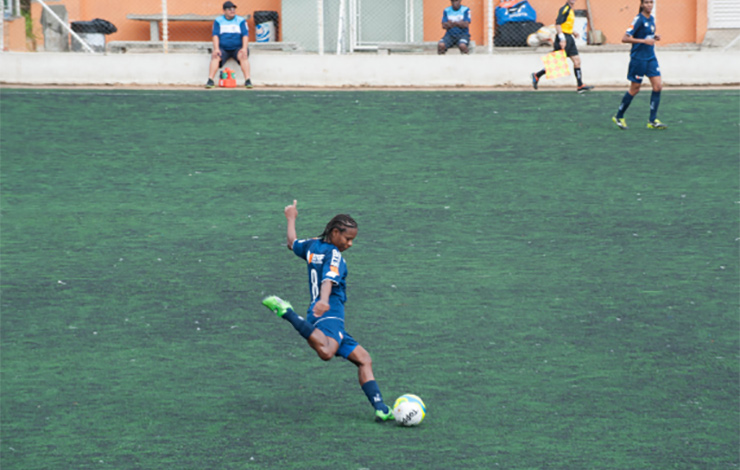

 Last week, several members of the U.S. women’s soccer team, the reigning World Cup and Olympic champions, filed a federal complaint charging the U.S. Soccer Federation (USSF) with wage discrimination.
Last week, several members of the U.S. women’s soccer team, the reigning World Cup and Olympic champions, filed a federal complaint charging the U.S. Soccer Federation (USSF) with wage discrimination.
According to the Wall Street Journal and ESPN, the filing—submitted to the Equal Employment Opportunity Commission—shows that despite the women's team generating nearly $20 million more in revenue last year than the U.S. men's team, the women are paid almost four times less.
Also greatly disparate is the pay for playing in the World Cup. The U.S. Women’s winning team received a total of $2 million when it won the World Cup last year. Yet when the U.S. men lost in the last World Cup, the team earned a total of $9 million just for playing.
While these disparities are concerning, they are not necessarily surprising. The WJP Rule of Law Index and other data sources show that the United States continues to struggle with issues of discrimination. With a score of 0.55 (on a scale of 0 to 1) for WJP Rule of Law Index sub-factor 4.1, “Equal treatment and absence of discrimination,” the U.S. ranks 30th out of 31 high income countries and in last place – 24th out of 24 countries – among its regional peers in North America and Western Europe.* When it comes to inequality faced by women in particular, The Economist “Glass Ceiling Index” rankings by wage gap place the U.S. in 20th place out of 29 OECD countries. The OECD’s Gender Data Portal further confirms that women in the US earn 72.72% of men’s earnings on average, despite completing secondary and tertiary education at higher rates than men.
The women players on the U.S. women’s team are not the only ones calling out the importance of equity for women in sports. In Brazil, a group of women athletes have created the Guerreiras Project, a way to use sports to create discussions around gender discrimination and access.
After attending the World Justice Forum in 2013 to speak on a panel about sports and the rule of law, Guerreiras Project co-founder Caitlin Fisher took a more deliberate rule of law focus in the Project’s work. For example, the group became more vocal about how women players are typically paid under the table without formal contracts so that employers are not accountable under the law. The group also began collaborating with FIFA to improve inclusion and include more women in decision-making.
In 2014, the Guerreiras Project received a seed grant through WJP's World Justice Challenge to begin a pilot program to train 25 of Brazil’s top female athletes as “ambassadors” to speak about gender discrimination for women in sports. Through the pilot program, the Guerreiras Ambassadors spoke with media and conducted workshops for youth in major cities where many of Brazil’s future players will be recruited. The idea behind the program was to reach these future players while they are still young and open minded, and create safe spaces for youth to reflect on their own experiences with prejudice. Many of the youth had never seen or met a professional female athlete, so having visible role models provided an opportunity to share their stories and ask questions paved the way for them to examine what women are capable of doing.
It remains to be seen whether the US women’s soccer team will turn the tide for women’s equal rights and equal pay in the sport. If the tide is in their favor, it could mark a giant step forward for the rule of law in sports.
To learn more about the Guerreiras Project, read this photo essay about their work.
*Data from the World Justice Project Rule of Law Index 2015® available here. Factor 4.1, “Equal treatment and absence of discrimination,” measures whether individuals are free from discrimination - based on socio-economic status, gender, ethnicity, religion, national origin, or sexual orientation, or gender identity - including with respect to public services, employment, court proceedings, and the justice system.

